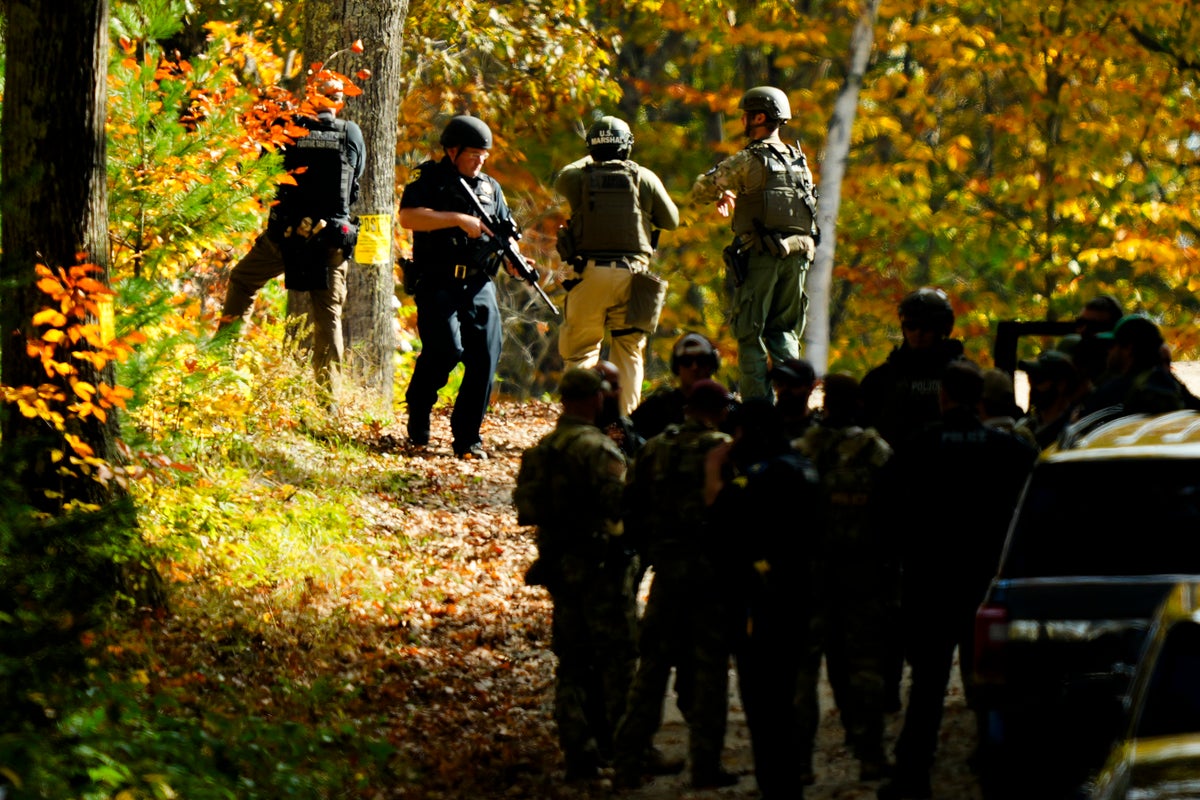
Maine police agencies became aware last month of threats that Robert Card made against his US army base, highlighting yet another missed warning sign ahead of the year’s deadliest mass shooting.
A statewide awareness alert was issued in mid-September to watch for Robert Card after he made threats against the base in Saco, Maine and fellow soldiers, the Associated Press reported. After searching for Card at his home and the base without success, the agencies moved on.
“We added extra patrols, we did that for about two weeks…The guy never showed up,” said Saco Police Chief Jack Clements.
Sagadahoc County Sheriff Joel Merry said he sent the awareness alert to every law enforcement agency in the state after his deputy conducted a welfare check to Card’s home without any sign of Card.
“We couldn’t locate him,” Sheriff Merry said, adding that he couldn’t recall if there was any follow-up because “I don’t have any reports in front of me.”
The statewide alert comes months after Card was committed to a mental health facility for two weeks in July after acting erratically and “hearing voices and threats to shoot up” a military base, the outlet previously reported. Officials at Saturday’s press conference, however, said they hadn’t come across a record showing that Card had been forcibly committed for treatment.
The public safety commissioner clarified there appeared to be a “strong mental health cloud over what happened.” Card was accused of killing 18 people and injuring 13 others on Wednesday. Law enforcement looked for Card for days following the shooting, until they eventually found his body on Friday evening in a box trailer. He appeared to have died by suicide.
Card’s familiarity with guns as a firearms instructor in combination with potential mental health struggles — and the statewide alerts following his alleged threats — raises questions about existing gun safety laws and what else could have been done to prevent this tragedy.
Chief Clements defended his department’s response to the alert about Card, which he described as a “generic thing that came out saying, hey, you know, we’ve had some report that this guy’s made some veiled threats.”
He also added that such alerts are not uncommon, and while he said his team did their due diligence and looked for Card, they never came across him.
“Never came in contact with this guy, never received any phone calls from the reserve center saying, ‘Hey, we got somebody who was causing a problem,’” he said. “We never got anything.”
Jonathan Crisp, a former Army lawyer, told the Associated Press that when soldiers are committed involuntarily to mental health facilities, it is a “reportable” event under Army regulations, setting off a network of alerts and subsequent restrictions.
As it is supposed to work, he explained, an official notes the incident in a military database which alerts the FBI, so the agency can enter the name into a background list of people prevented from buying weapons.
“If they took him and he didn’t want to go and he refused to be admitted, it’s a slam dunk,” Crisp said. “This should have been reported.”







